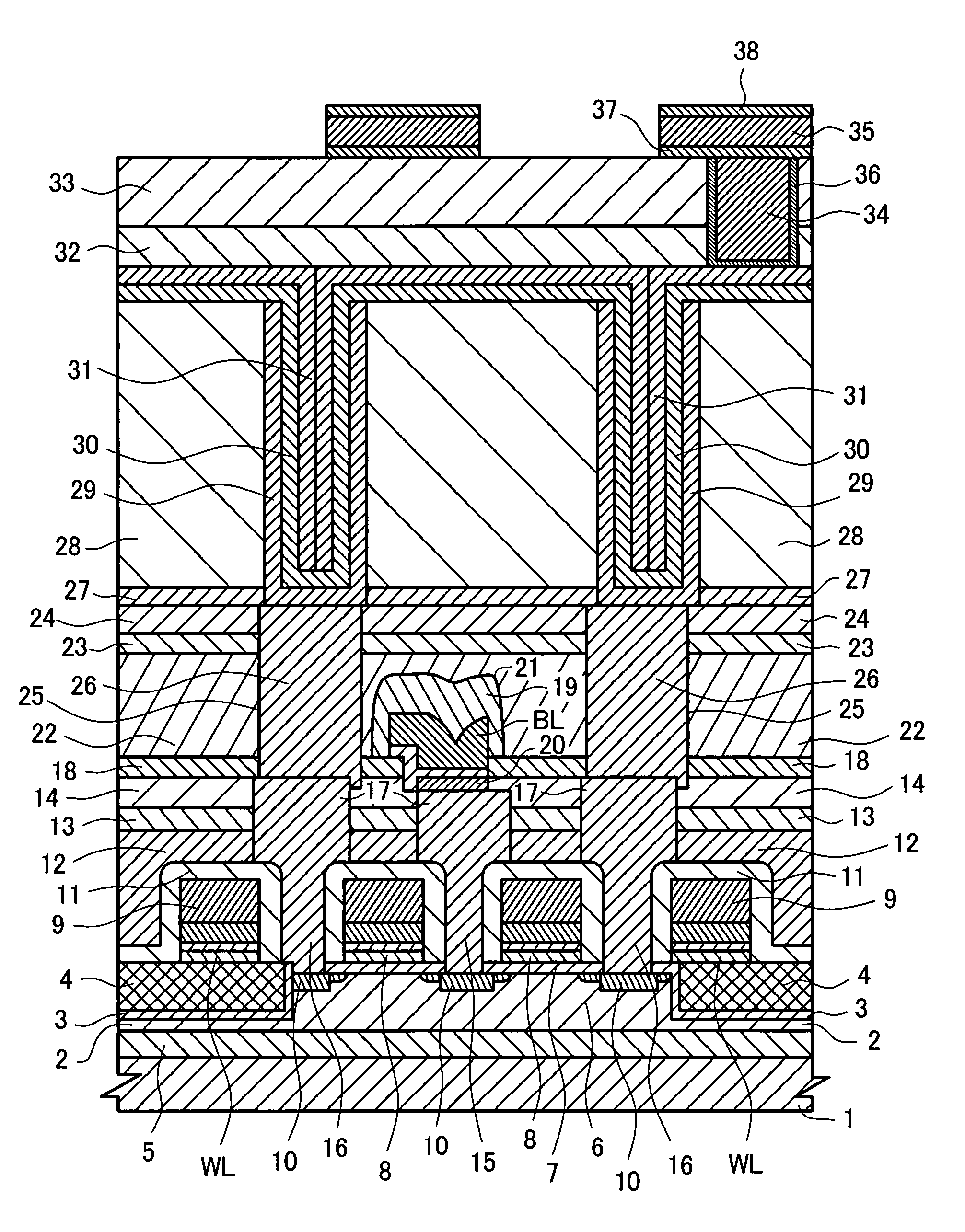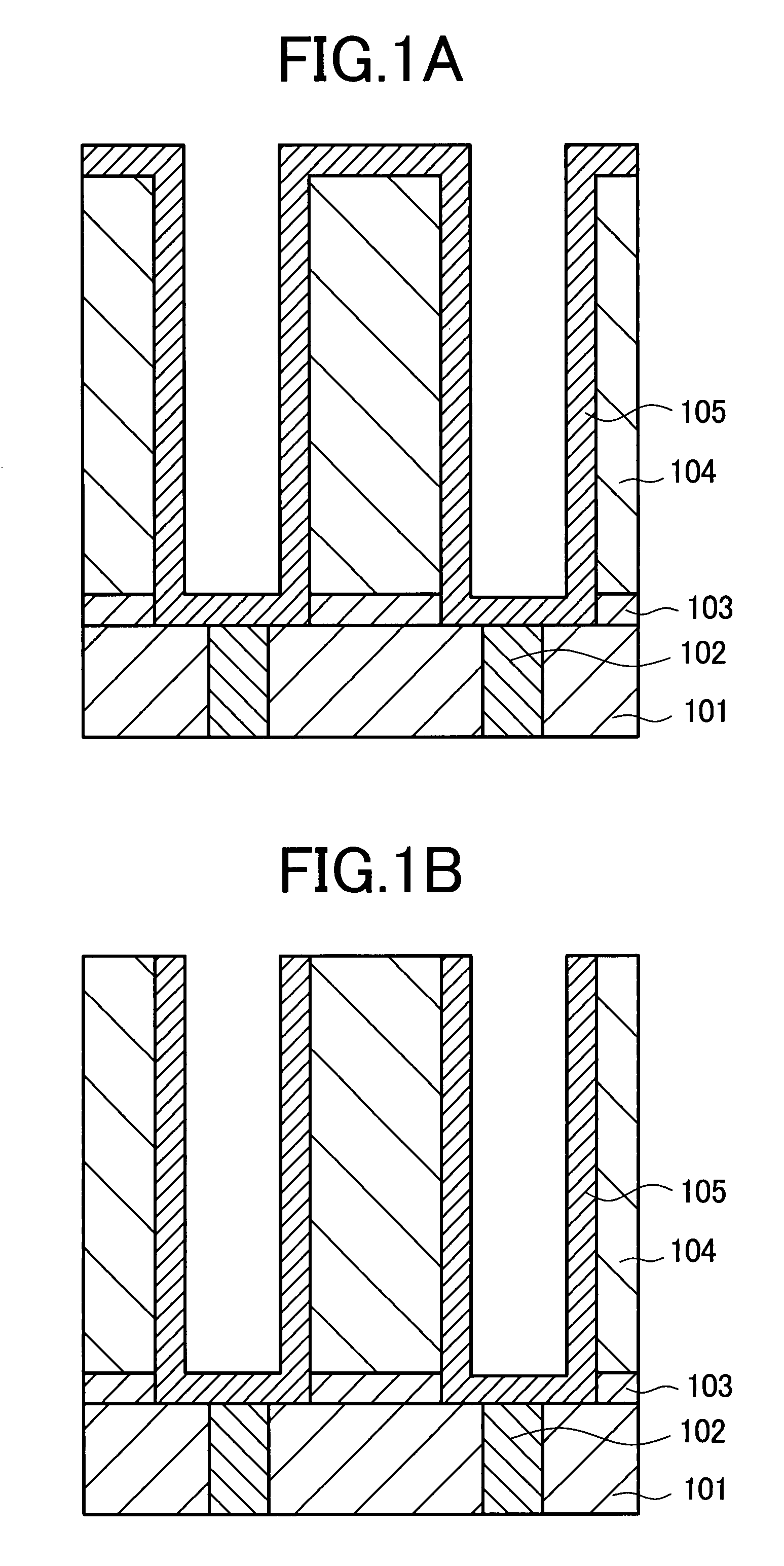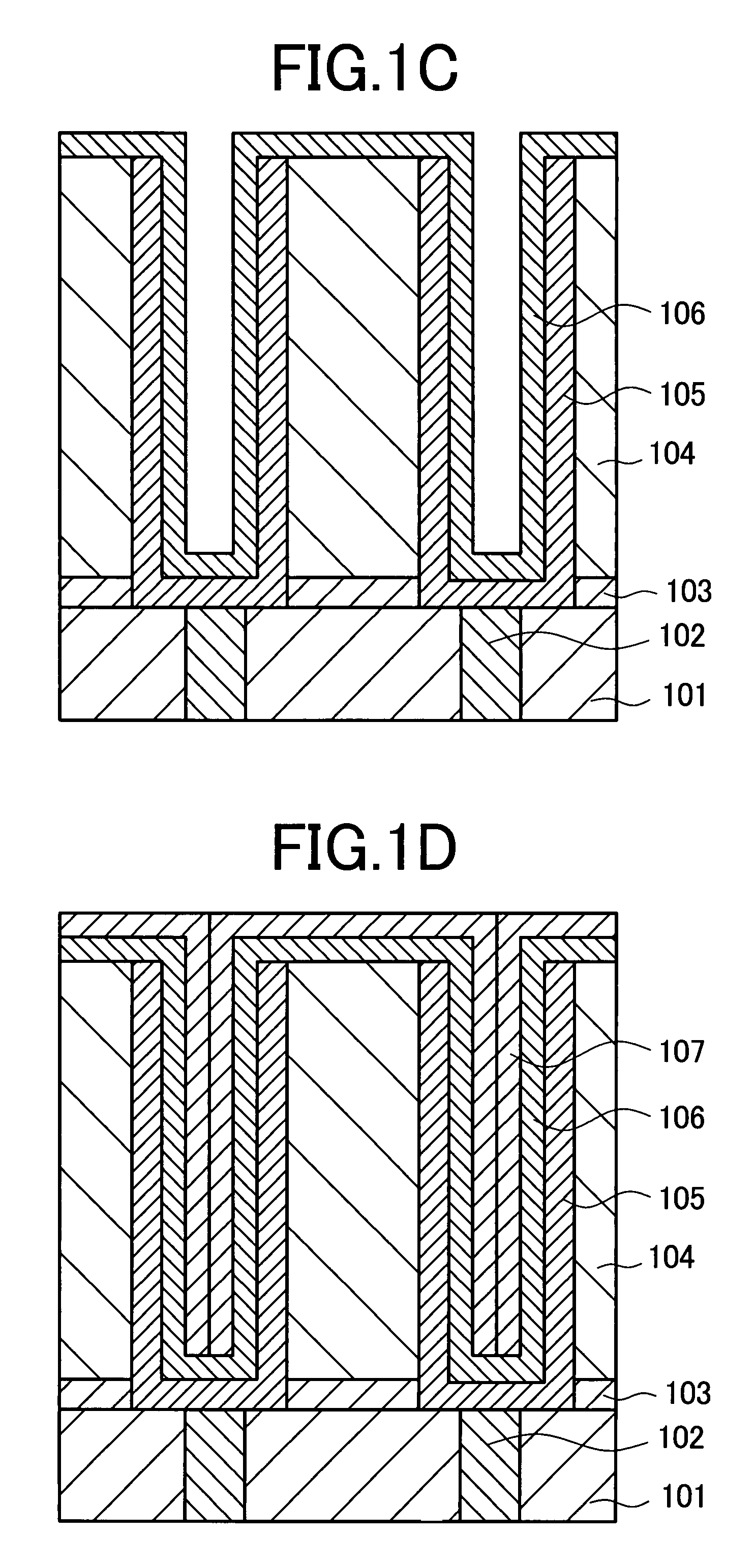Semiconductor memory device
a memory device and semiconductor technology, applied in semiconductor devices, capacitors, electrical devices, etc., can solve the problems of reducing the effective storage capacitance, the dielectric film is difficult to reduce the effective oxide thickness, and the capacitors have a sufficient storage capacitance, so as to increase the relative dielectric constant of a base material made of hfo2 or zro2 and increase the oxygen coordination number of the base material
- Summary
- Abstract
- Description
- Claims
- Application Information
AI Technical Summary
Benefits of technology
Problems solved by technology
Method used
Image
Examples
first embodiment
[0038]A first embodiment of the present invention will be described with reference to FIGS. 1A to 1D. These figures are cross-sectional views showing an MIM capacitor structure that employs a dielectric film doped with an element having a large ion radius. For example, this MIM capacitor structure can be applied to semiconductor memory devices, especially DRAM.
[0039]First, the steps before and including the step of forming the lower electrode will be described with reference to FIGS. 1A and 1B. Referring to FIG. 1A, plugs 102 of polysilicon are formed in a plug section interlayer insulating film 101 made up of a silicon oxide film. The plugs 102 are provided to electrically connect between the memory cell select transistor and the capacitor.
[0040]Then, a silicon nitride film 103 and a capacitor section interlayer insulating film 104 made up of a silicon oxide film are deposited, and trenches are formed in these films so as to expose the plugs 102. The capacitor section interlayer in...
second embodiment
[0049]A second embodiment of the present invention will be described with reference to FIGS. 2A to 2D. These figures are cross-sectional views showing an MIM capacitor structure that employs a dielectric film doped with an element having a large ion radius. For example, this MIM capacitor structure can be applied to semiconductor memory devices, especially DRAM. It should be noted that the MIM capacitor structure of the present embodiment differs from that of the first embodiment in that portions of the outer sidewalls of the lower electrode are used to form capacitance.
[0050]First, the steps before and including the step of forming the lower electrode will be described with reference to FIGS. 2A and 2B. Referring to FIG. 2A, plugs 102 of polysilicon are formed in a plug section interlayer insulating film 101 made up of a silicon oxide film. The plugs 102 are provided to electrically connect between the memory cell select transistor and the capacitor.
[0051]Then, the following films ...
third embodiment
[0058]A third embodiment of the present invention will be described with reference to FIG. 3. The third embodiment provides a DRAM employing the MIM capacitor structure of the first embodiment.
[0059]There will be described a method for manufacturing this DRAM.
[0060]FIG. 3 is a cross-sectional view of the DRAM employing an MIM capacitor structure according to the present embodiment. First, trench isolation regions 4 and an impurity-doped P-type well 6 are formed in the semiconductor substrate 1 in the following manner. First, a P-type single-crystal silicon semiconductor substrate 1 having a specific resistance of approximately 10 Ocm is provided. Then, a thin silicon oxide film (now shown) having a thickness of approximately 10 nm and a silicon nitride film (not shown) having a thickness of approximately 140 nm are formed over the semiconductor substrate 1. More specifically, the silicon oxide film is formed by wet oxidation, e.g., at approximately 850° C., and the silicon nitride f...
PUM
 Login to View More
Login to View More Abstract
Description
Claims
Application Information
 Login to View More
Login to View More - R&D
- Intellectual Property
- Life Sciences
- Materials
- Tech Scout
- Unparalleled Data Quality
- Higher Quality Content
- 60% Fewer Hallucinations
Browse by: Latest US Patents, China's latest patents, Technical Efficacy Thesaurus, Application Domain, Technology Topic, Popular Technical Reports.
© 2025 PatSnap. All rights reserved.Legal|Privacy policy|Modern Slavery Act Transparency Statement|Sitemap|About US| Contact US: help@patsnap.com



